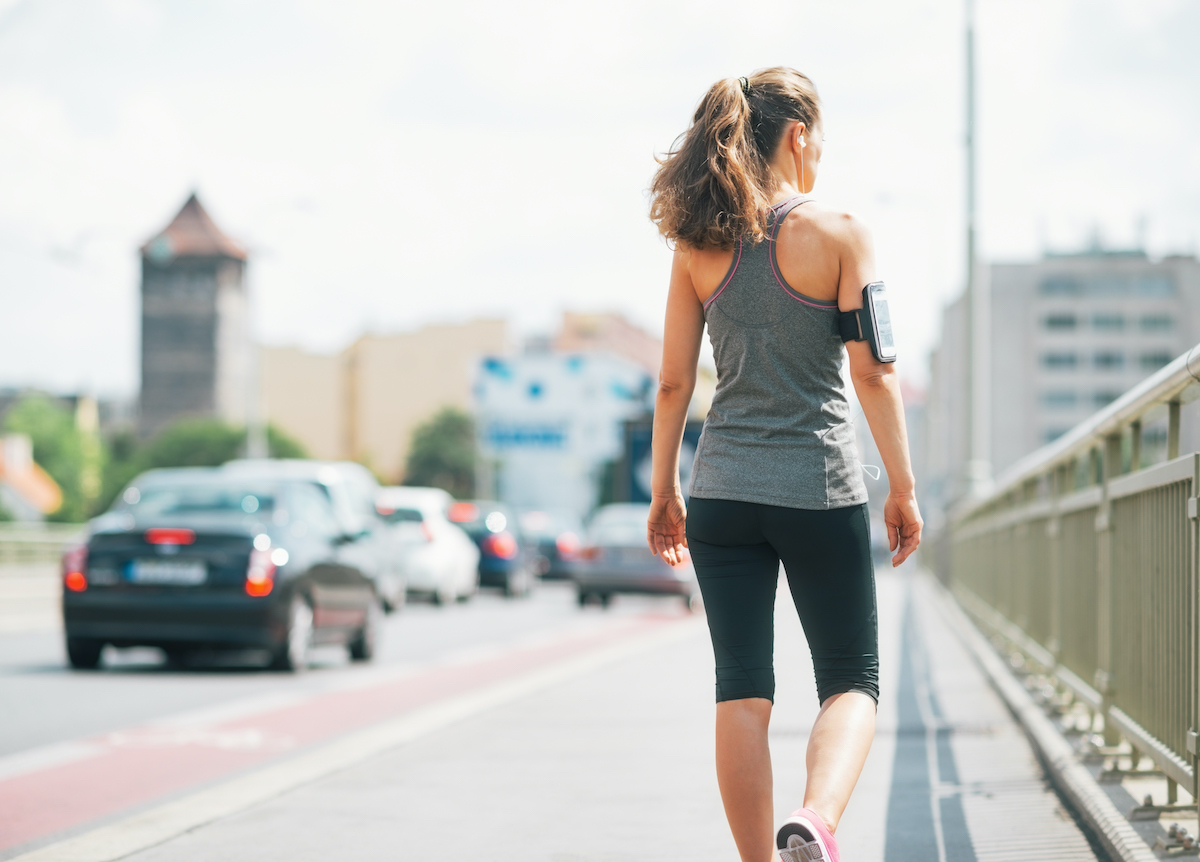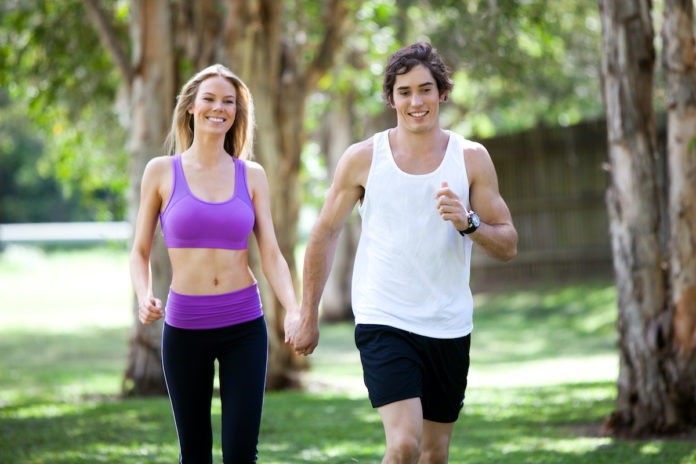If you prefer walking for exercise and you often go out with your spouse or significant other, new research suggests you’d be wise to leave them in the dust—or at least encourage them to pick up the pace. A study just published in the academic journal Gait & Posture found that couples who go walking together also end up walking at a much slower pace. If the couple was the hand-holding type? Their speed went down even further.
“If someone substantially slows down when they are walking with someone else, that could negate some of the health benefits recognized if they walked alone at a faster pace,” said Libby Richards, Ph.D., MSN, RN, CHES, an associate professor of nursing at Purdue University, which conducted the study.
Though other studies have shown that working out with friends and family is hugely beneficial for achieving more fitness gains—and imposing a greater sense of accountability on all of those involved—the act of walking, perhaps because it’s an exercise performed at a conversational pace, appears to be an exception. “We were hoping that there would not be a reduction in speed where partners walked together,” explained Richards. “We hoped that slower partners would speed up to match the faster partner, but that was not the case.”
For the study, the researchers studied the times spent walking and gait speeds for 72 couples that ranged in age from 25 to 79 years-old. They performed all sorts of walks “in numerous settings,” said the study, “including clear or obstacle-filled pathways, walking together, walking together holding hands, and walking individually.”
As countless studies have shown, gait speed is enormously important to the quality of exercise you’re getting when you’re out walking. “Gait speed is important to measure because it is related to overall health. Typical gait speed is predictive of fall risk, functional ability, disability recovery and mortality,” said Shirley Rietdyk, Ph.D., M.S., a professor of health and kinesiology at Purdue, in the study’s official release. (For further proof of the importance of gait speed, know that a new study of cancer survivors published in the journal Cancer Epidemiology, Biomarkers & Prevention concluded that “those who walked at the slowest pace had more than twofold increased risk of death from any cause, compared with those reporting the fastest walking pace.”)
Ultimately, the researchers found that in all types of walking conditions, “both partners reduced speed when walking together, and reduced speed further while holding hands, when compared to walking alone. While walking with a partner may increase walking activity due to social support, reduced speed when walking together may unintentionally reduce health benefits and gait quality in both partners.”
So remember this the next time you’re headed out for a stroll with your SO. For just some of the added benefits you’ll enjoy after picking up your walking pace, read on, because we’ve listed them right here. And for more great advice for making the most of your walks, don’t miss the Major Mistakes You Should Never Make While Walking, According to Experts.
A new study of cognitively impaired, older adults, which was published in the Journal of Alzheimer’s Disease, has found that going out for brisk, half-hour walks promotes healthy blood flow to the brain and improves its cognitive performance, while boosting memory function.

If you’re looking to stabilize your blood sugar, you could find worse ways than taking a short and brisk walk in your neighborhood after eating. A study published in the journal Diabetologia in 2016 found that just a 10-minute walk after eating helped people with Type 2 diabetes lower their blood sugar levels. For more great ways to be fitter starting now, consider trying This Total-Body Home Workout That Builds Strength and Burns Calories Fast.

According to a study published in 2015 in The American Journal of Clinical Nutrition, a brisk 20-minute walk every day could reduce your risk of death by upwards of 30%.

“Having a regular walking schedule can be great for your health, and I am not just talking about physical, but also your mental health,” Dr. Amy Lee, Head of Nutrition for Nucific, previously told Eat This, Not That. “[You have a] feeling of accomplishment by burning calories, [you] can lower your daily stress, and you let the body secrete natural endorphins which is the ‘feel-good’ hormone.”

A study published this year in the journal Scientific Reports says you should take more brisk walks for the sake of your creativity. And get this: The more you walk, the more your mind will flourish. “The most active of the volunteers proved to be also the most creative, especially if they often walked or otherwise exercised moderately,” explained The New York Times. And if you’re walking to lose weight, make sure you’re aware of How Far You Should Walk Every Day to Burn More Fat, Says Top Doctor.


























